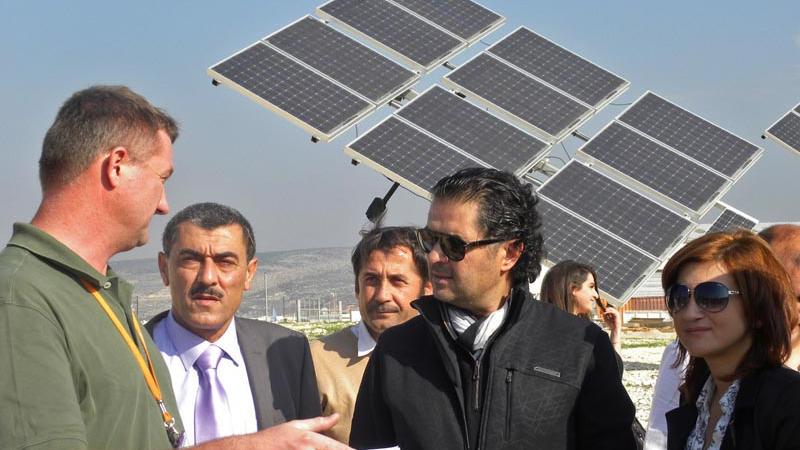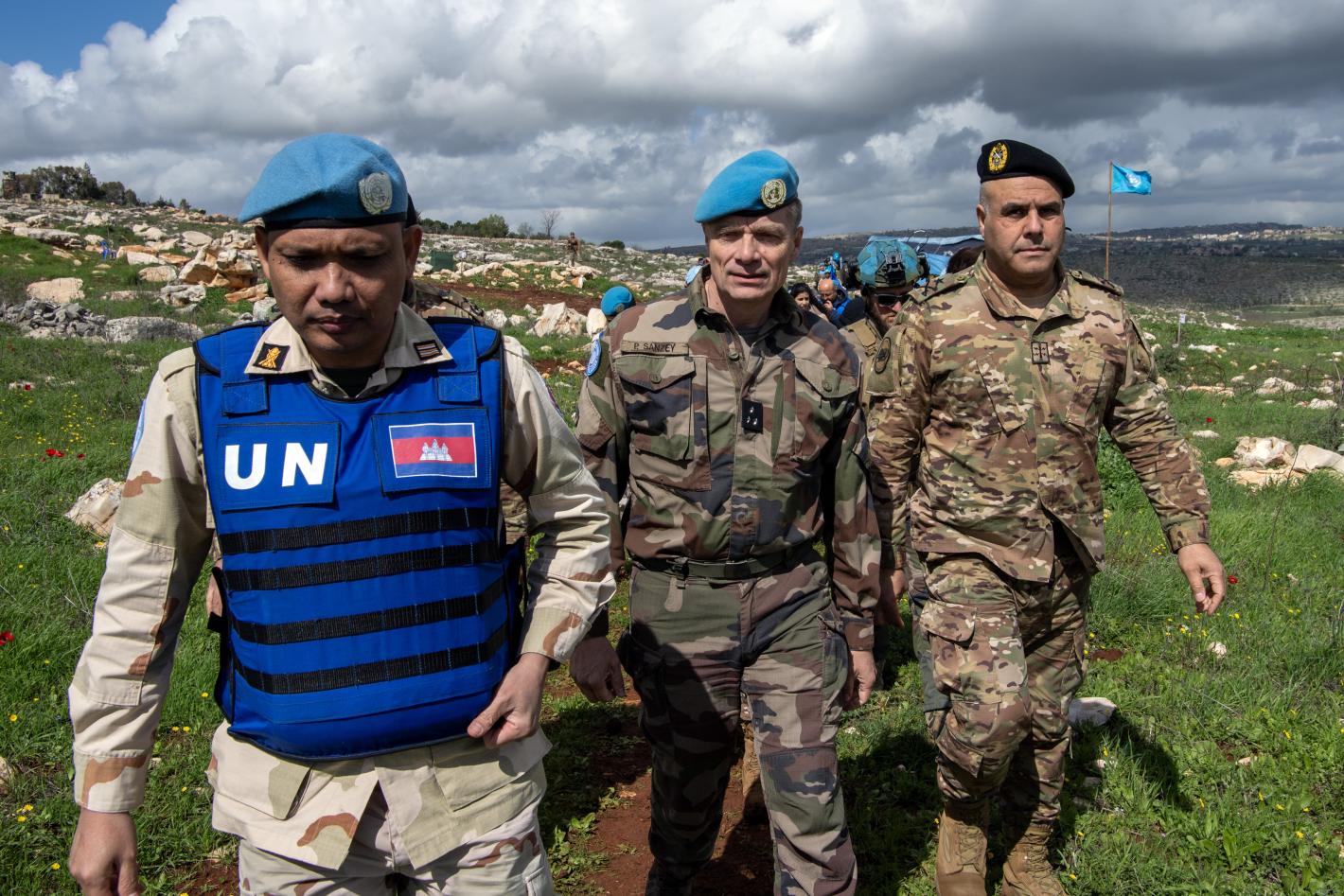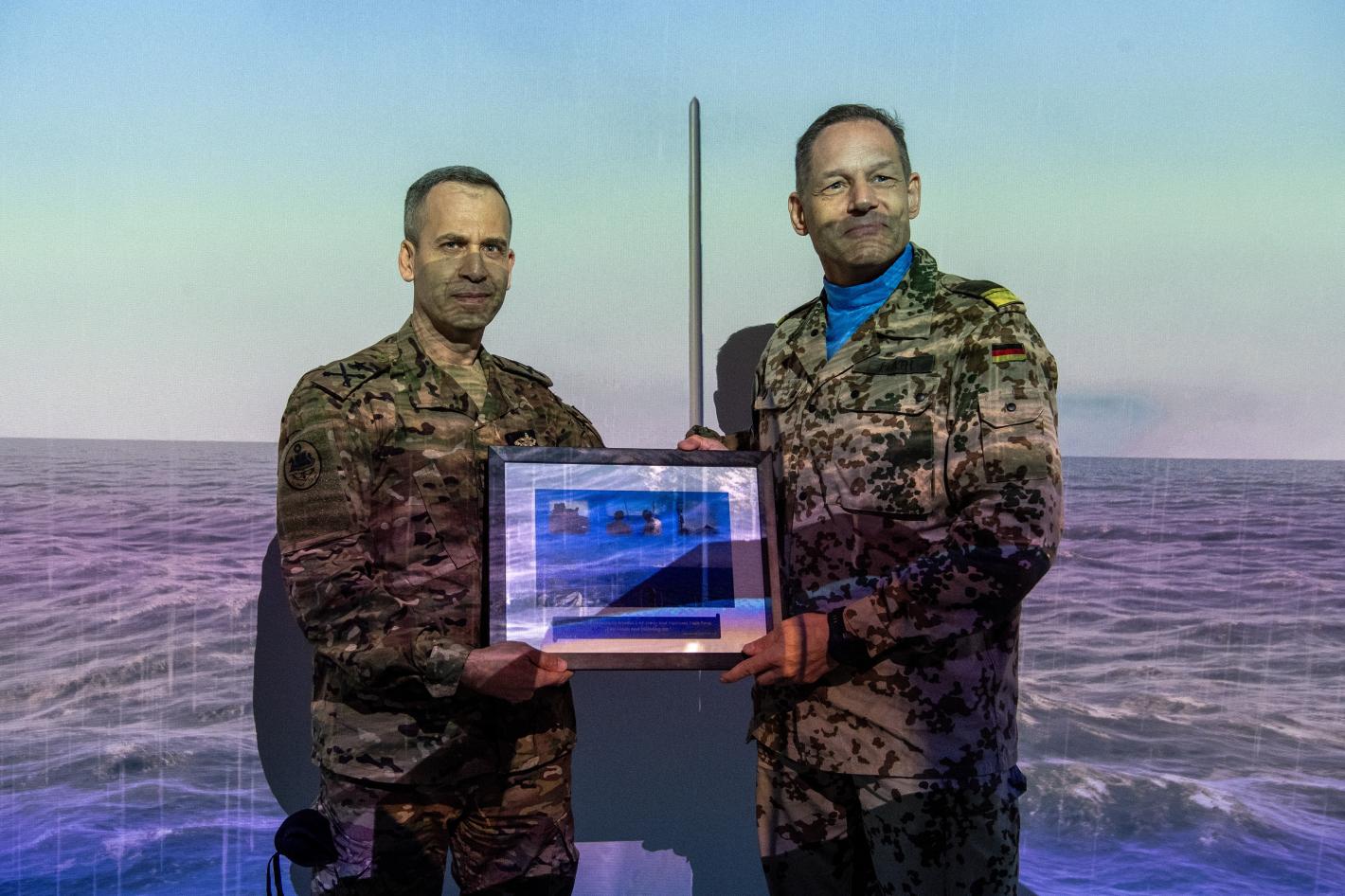Two years have passed since his appointment as a UN ambassador for Climate Change and the Lebanese artist Ragheb Alama still feels the need to intensify his efforts to raise awareness on environmental issues in Lebanon.
Mr. Alama, who is scheduled to hold talks with the UN Secretary General Ban Ki Moon in Qatar this week, visited UNIFIL headquarters as part of the "Seal the Deal" campaign for protecting the planet and calling for an urgent action on climate change.
Alama's tour of UNIFIL's environmental facilities was guided by UNIFIL's Chief of Regional Information & Communications Technology Services (ICTS), Mr. Anthony O'Mullane and the environmental unit.
The tour was initiated at the new Waste Water Treatment Plant. The UN ambassador for Climate Change listened to how the plant's capacity ranges between 600 and 800 cubic meters per day. The plant is designed to treat most of UNIFIL's waste water, resulting in recycled treated water suitable for irrigation and safe for the environment.
"We should raise our voices and scream if needed. People should start to care about the air they are breathing" said Alama in an interview.
The tour's next stop was at the second waste water treatment plant in the Green Hill, where Mr. Perera Luckottage from the Engineering Section explained to Alama that the wastewater treatment plants treat wastewater using a microbiological technique, which is a completely natural process adhering to national and international standards, where UNIFIL does not discharge wastewater to the environment without proper treatment.
The third stop was at the Green Hill-Solar Farms. Mr. Christian Roner from ICTS explained to Alama, who was quite impressed by UNIFIL's initiatives, that the electricity produced so far by the solar panel arrays has reached 522,000 KW/Hrs, resulting in a CO2 reduction 270.000 kg. The solar power initiatives and its efficacy are still being closely monitored, but UNIFIL sees a potential in using the sun's free power to reduce the mission's use of generators.
The tour was concluded at the Recycling Facility where Mr. Larry Baxter from the General Service /Contract Management section explained that the recycling program at UNIFIL's HQ is focusing on cardboard, paper, plastic and aluminum cans, while other recycling plants throughout the area of operations go a step further and aim to collect and recycle everything than can be recycled.
"During this short period we managed to reduce 10% of regular garbage from going to landfill' said Mr. Baxter.
Mr. Alama was pensive at the end of the tour. "I want us to be able to do the same in Lebanese towns and in Beirut. I want to discuss this matter with UNIFIL and Lebanese officials in order to figure out a way where we can draw attention to this matter" he said.
Alama noted how drastic the environmental situation in Lebanon is, and how much we suffer. He targets the Lebanese mentality, hoping for a change in the attitude and behavior in order to salvage Lebanon's environment.
"What UNIFIL has achieved in this manner is really something to be proud of. They represent for me the beam of hope we are all craving for" concluded Alama at the end of his visit.






